MercoPress. South Atlantic News Agency
Tag: Lula da Silva
-
Wednesday, January 9th 2013 - 18:30 UTC
Lula da Silva to be investigated over the vote-buying scheme in Congress
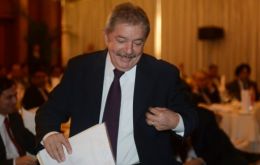
Brazilian prosecutors will likely investigate former President Lula da Silva's alleged involvement in a vote-buying scheme in Congress that led to the conviction of several of his closest aides for corruption, two newspapers reported.
-
Thursday, December 20th 2012 - 05:38 UTC
Brazil to investigate corruption allegations involving Lula da Silva
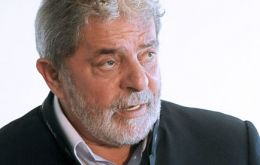
Brazil’s Attorney General said the country’s judiciary will investigate allegations that former President Lula da Silva took part in the cash-for-votes scheme that toppled several of his closest aides.
-
Wednesday, December 12th 2012 - 07:55 UTC
Rousseff defends Lula da Silva from growing claims of personal corruption
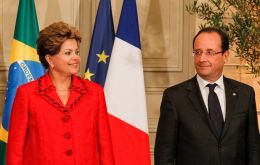
Brazilian president Dilma Rousseff currently on an official visit to France described as ‘regrettable’ the accusations against her predecessor Lula da Silva published in the Sao Paulo media and underlined her respect and admiration for the leader.
-
Monday, November 26th 2012 - 06:46 UTC
Dilma Rousseff sacks top officials involved in influence-peddling ring

Brazilian president Dilma Rousseff moved quickly and with no consideration for political allies ordered the dismissal on Saturday of all government officials allegedly involved in a bribery ring, including the country's deputy attorney general.
-
Tuesday, November 13th 2012 - 00:05 UTC
Lula da Silva former chief of staff sentenced to 10 years in prison for corruption
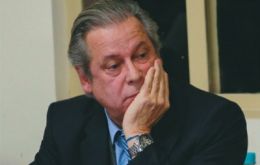
The chief of staff to former President Lula da Silva, and fellow founder of Brazil's ruling Workers' Party, was sentenced to over 10 years in prison for running a congressional vote buying scheme almost a decade ago.
-
Friday, October 19th 2012 - 05:25 UTC
Strong message from Lula da Silva to victorious Chavez: prepare your succession
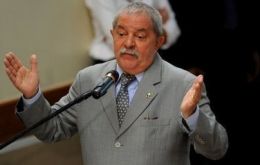
Former Brazilian President Lula da Silva said he believes it is time for Venezuelan leader Hugo Chavez, recently re-elected for another six years, “to begin preparing his succession”
-
Thursday, October 18th 2012 - 06:52 UTC
Lula da Silva calls for Argentine/Brazilian business corporations
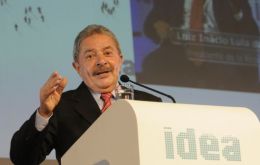
Brazil's former President Lula Da Silva blasted the “protectionist” measures of the developed countries and called for the alliance between businessmen from his country and Argentina's, as he highlighted that Brazil “grows, but with a controlled inflation rate”.
-
Wednesday, October 10th 2012 - 08:23 UTC
Brazil high court convicts top aides of Lula da Silva for ‘Mensalao’ corruption scandal
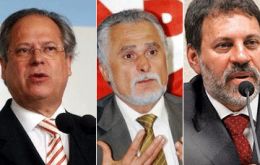
Brazil's Supreme Court convicted three top aides of former president Lula da Silva of graft related to a vote-buying scheme in Congress. Lula's ex-chief of staff Jose Dirceu was found guilty by six of the 10 judges in connection with the scheme that ran from 2002 to 2005 during the popular president's first term, a court spokesman said.
-
Wednesday, October 3rd 2012 - 04:12 UTC
Lula da Silva trusted aides face overwhelming evidence of involvement in ‘active corruption’
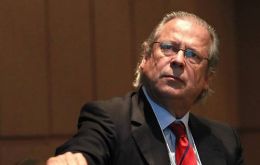
The so called “trail of the century” in Brazil has already condemned 22 of the 37 culprits and on Wednesday is expected to peak when three former leaders of the ruling Workers’ Party are formally accused of having setup a network of bribes to ensure a majority in congress.
-
Wednesday, October 3rd 2012 - 03:59 UTC
Despite Dilma, Lula and Cardoso, Sao Paulo city could end with an outsider as mayor
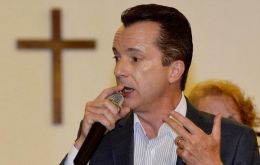
Brazilian president Dilma Rousseff joined her mentor Lula da Silva in a political rally in support of the Workers Party candidate for mayor of the city of Sao Paulo in next Sunday’s municipal elections when 140 million Brazilians are registered to vote.
